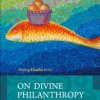Dear Readers,
All of mankind living on planet Earth generates superhuman efforts to solve the ancient question of identity as unity in diversity. Although this problem received answers throughout history, in more or less satisfactory forms, it appears that our time, especially from the time of the French Revolution, wrestles with it in its sharpest form. At the beginning of the 21st century, the relationship of the Serbian Homeland with its Diaspora in the West in a great way reflects this problem, within the framework of a broader relationship of Serbian people with the West.
It is certain that life, place and role of a nation depend upon solving the quintessential question of identity, unity and diversity within the broader family of one world, which has become one big neighborhood. When we speak of Serbian people, I think that it is important to come to a human and civilized consensus within the boundaries of our nation without which it would be difficult to have a normal relationship with and an understanding of others and those different from us. We are witnesses, unfortunately, that instead of spiritual-social and civilized functioning wisdom, today we have clearly political and economic interests which have pushed out the above mentioned wisdom and skills with the thirst for "informative contents", meaning that the utilitarian principle wins over our ability to live together. Therefore we are witnesses of the end of culture (western and oriental) as a whole ethos and an integral system of knowledge, belief and behavior. The future, or actually current, international community becomes a community of national interest groups, rather than a union of countries. Sometimes we are under the impression that the Serbian State and the Serbian national territory become more and more diaspora themselves. It appears as if we, walking toward modern currents, are confronted with a dilemma, to give vain, often just illusory, and anachronistic resistance, or bravely, with well thought out actions, but foresightfully wrestle with historic, or so called cosmogonial challenges.
Within the framework of the theme of the Role of the Serbian Orthodox Church in Preserving the Diaspora's Identity, I present to your attention the motion of facing the challenge of "unity in diversity" on the North American continent. This project we named Serbica Americana.
Serbica Americana is the center for research, documentation and information of authentic Serbian academic-scientific, theological-church and cultural-art accomplishments in North America.
The work of the center has the following scope, field and focus:
- Collection of theological material and historical documentation (books, periodicals, newspapers, ethnographic material, life stories...)
- Printing into the English language works of the most important theological writers of the 20th century: Fr. Sebastian Dabovic, Bishop Nikolaj Velimirovic, Fr. Justin Popovic, Bishop Danilo Krstic, Bishop Amphilohije Radovic, Atanasije Jevtic, Patriarch Pavle, as well as younger Serbian thinkers and theologians
- Organizing expert meetings, public speaker platforms, popular lectures, visitation by scientists, publicists, writers etc., with theological, cultural, historical and other themes
- Formulating clear and long-term goals of serbian diaspora
- Printing of a periodical (for instance, a quarterly paper) in which will be published short reports about theological research, interesting segments of the material, etc., as well as announcement of future work
- Organizing supplemental classes and different courses about national and spiritual culture for young people of all ages at diocesan centers (in collaboration with similar institutions)
- Organizing study visitations of young theologians who could, beside their personal professional work, assemble and organize scientists with similar interests from their field
- Maintaining constant collaboration with other theology schools in the Homeland and Diaspora, with the coordination of joint activities
- Formation of a compact nucleus of well-known leaders with a clear vision and dedication
- Coordination of professional and cultural work in other organizations who are interested in the preservation of spiritual and national inheritance (church, national press, national associations)
- Including (through material and logistical support) young theologians from the Homeland and Diaspora in theologically directed research
- Copying and distributing certain cultural and historical values (material, tape and long-play recordings, rare books, etc.)
- Establishing departments for library work and collection of material in cities with a larger population of Serbs
- Creation of continent-wide web "representatives" to collect data about local communities in various areas of the USA and Canada, as well as to record important informers (priests, politicians, cultural workers) who possess certain material or could write memoirs or similar writings
- Preparation of material for presentation in the Homeland and Diaspora to inform the Homeland of theological achievements, needs and projects
- Coordination of work departments for Slavic, Byzantine, Balkan and similar departments in universities in the USA and Canada (standardization and supplementation of existing curriculum and programs with suggestions and sponsoring of new postgraduate courses)
- Scholarship awards for Serbian students and stimulus for doctorate dissertations (generally: scientific training of Serbian theology in America)
- Media (propaganda in general) presentation about the importance of the mission of Serbian theology on the North American continent. First laborers: Sebastian Dabovic and Nikolaj Velimirovic
- Writing the history of the Serbian Church in the USA; creation, life and formation of the Serbian Church in the USA, parishes and monasteries (schematizm)
- Serbian military, political and science history in America
- Scholarship awards for researchers within the framework of Serbica Americana
- Consulting in the sense of realization of Serbian goals





